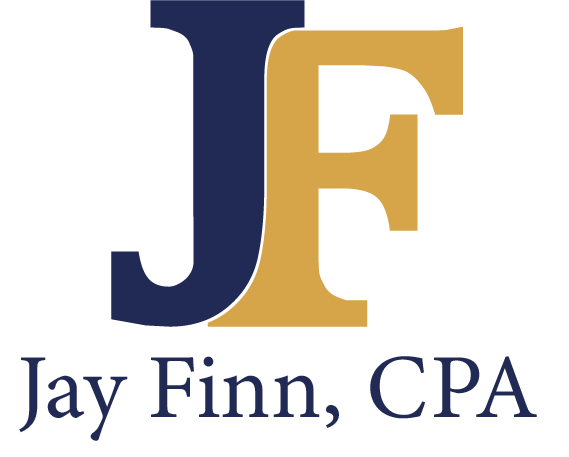Common IRS forms and schedules that you should know
There are nearly 1000 tax forms on the IRS website and knowing which ones you need can be overwhelming.
Whether you’re a self-employed contractor or a married couple with several properties, there are specific IRS forms you are required to include in your federal tax filing.
The tax experts at Jay Finn, CPA will ensure you have every form specific to your unique tax status.
Tax Forms
Some IRS tax forms – the W-2, 1098, or 1099 – may be sent to you by an employer with pre-filled information. All other forms must be filled out as part of your federal tax preparation.
Form 1040 & 1040-SR
The IRS form 1040 (1040-SR for seniors) is the standard federal income tax form that people use to report their income, deductions, and credits. A separate schedule will need to be attached depending on your tax situation.
Schedule EIC
Earned Income Credit
The Earned Income Credit is a tax credit that reduces tax liability according to an individual or family’s annual earned income. Qualified dependents and children will increase the credit.
Schedule A
Deductions & Credits
If you paid property taxes, interest on a mortgage, state taxes, medical expenses or any other expenses that qualify for a tax break, you will use the Schedule A to itemize each of the qualifying deductions.
Schedule B
Dividends & Interest
The Schedule B calculates the taxable interest and dividends that you earned during the tax year, in excess of $1,500.
Schedule C
Self Employed
If you are a freelancer, contractor, or self-employed, you will report your profit and loss on a Schedule C form. You can also deduct any expenses relating to your business on this form.
Schedule D
Capital Gains & Stocks
If you traded or sold any stocks or bonds during the tax year then you’ll need to file a Schedule D along with your other tax forms. This form calculates your captial gains and losses. Up to $3,000 of your net losses could be deductible.
Schedule E
Supplemental Income / Loss
The IRS Schedule E form report on income or loss from several different types of business or real estate activity. This form is used to report income or losses from rental property, royalties, partnerships, estates, trusts, etc. and should be included in your personal tax return.
Form 1040-X
Amended Tax Return
If you need to amend an already-filed tax return then you will need to submit a Form 1040-X to the IRS. Reasons for amending your tax return could include a change in filing status, number of dependents, or corrections to credits or deductions.
Forms 1098-E / 1098-T
Student Loan Interest & Tuition
If you made payments on a federal student loan, you may be eligible to deduct a portion of the interest you paid on your federal tax return with form 1098-E. The 1098-T Tuition Statement form reports tuition expenses you paid for college tuition and may entitle you to an adjustment of income or tax credit.
Why do you need a CPA to file your personal taxes?
Having the right forms is only half of the equation.
All tax forms and schedules are available on the IRS website for individuals to download and fill out themselves. While this may seem to make it easier to file your own taxes, the type of information to provide can still be confusing.
Even if you know which forms you need, you may not completely understand which information to report. The tax experts at Jay Finn, CPA are trained by former IRS agents to recognize and understand the nuances of the federal tax code, ensuring that your tax return is correct…every time.
Own a business?
Business owners typically file their business taxes separate from their individual taxes.
We’ll help you file your business taxes to reduce your business and personal tax liability.







